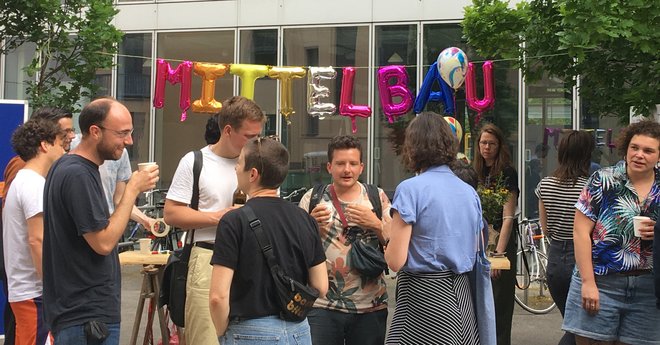Welcome to our Information Page!
Interested parties can find information here on the representation of academic staff on Bauhaus-Universität Weimar committees, current working groups, and on projects of the non-professorial teaching and research staff, as well as links to further information.
We appreciate your interest and are available as contact persons for all questions concerning Bauhaus-Universität Weimar’s academic staff.

What does »Non-professorial Academics« – in German: »Mittelbau« – mean?
At the Bauhaus-Universität Weimar, we refer to the scientific employees as »non-professorial academics« – a designation that includes research, teaching, and artistic staff members. In German, the term generally used is the more compact »Mittelbau« or »akademischer Mittelbau«, which refers to the central role and position of such employees.
»Mittelbau« is not officially defined anywhere. Still, it originates from German university history, where scientific employees have always occupied the position between students and professors. The term also reflects the hierarchical structure of the German university, which can undoubtedly be called into question.
However, since we know no other comparably common term, we also refer to ourselves as »akademischer Mittelbau« in direct communication. In official contexts, we usually speak of »scientific employees«. We would be pleased to receive suggestions for alternative designations from you.

